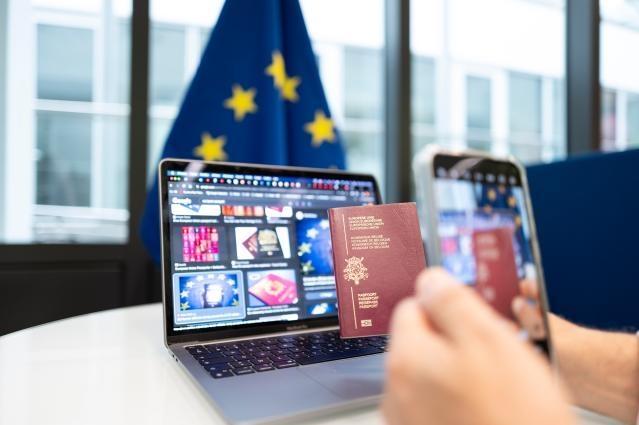Both EU citizens and non-EU citizens are subject to systematic checks in person when crossing the EU’s external borders. In 2023 alone, there were almost 600 million crossings recorded. To speed up border controls and ensure smoother and more secure travel, the Commission has proposed to digitalise passports and identity cards for anyone entering or leaving the Schengen area.
Specifically, the Commission has put forward:
- a common framework for the use of digital travel credentials
- a new ‘EU Digital Travel’ app, for travellers to create and store their digital travel credentials
Digital travel credentials are a digital version of the data stored on passports and identity cards. They include the information contained in the chip of the passport or ID card, including a facial image of the holder but not their fingerprints. A digital travel document can be stored on a mobile phone and, once available, in the EU Digital Travel application. It will be completely voluntary for travellers to ask for or use this digital version of their documents, free of charge.
Such a scheme will:
- Improve security: it will be harder for fraudsters to use fake documents or pass through Schengen borders undetected.
- Improve border controls’ efficiency: thanks to advance checks made possible by digital travel credentials, border management authorities can focus more directly on migrant smuggling and detecting cross-border criminals
- Allow for smoother and faster border crossings: travellers will be able to submit their digital passports or ID cards ahead of the journey, for an advance border check
- Reduce administrative burdens for EU citizens: EU countries may allow their citizens to use digital identity cards for other forms of registration and identification.
The EU Digital Travel app will be available for all EU and non-EU citizens with a biometric passport or EU identity card travelling to or from the Schengen Area. Thanks to the app, travellers will be able to create digital travel credentials and submit their travel plans and documents to the border authorities in advance, to speed up checks at the border. The app will require user consent before processing personal data. Border authorities will also receive training on data security and data protection rules before being allowed to access the data.
It is now for the Council of the EU and the European Parliament to agree on the proposals. Once adopted, the EU Digital Travel application and the necessary technical standards will be developed.
For more information
European Digital Identity Wallet
Factsheet on the digitalisation of travel documents
Press release: Commission proposes an EU Digital Travel application for easier and safer travel
Questions and Answers on EU Digital Travel application for easier and safer travel



